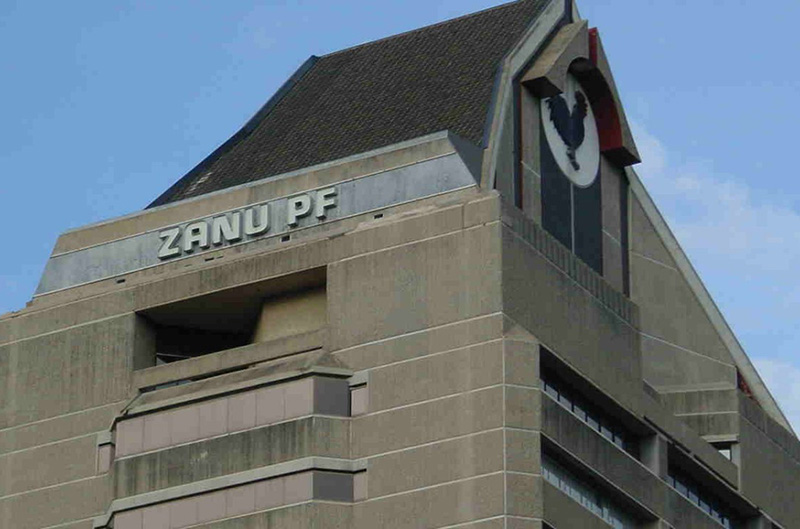Zimbabweans are pushing back against proposed constitutional amendments aimed at extending President Emmerson Mnangagwa’s tenure beyond the constitutionally mandated two terms, describing the plans as an illegal power grab and a direct affront to the country’s democratic principles.
This resistance follows Zanu PF’s increasing calls for amendments that could either extend the presidential term limit from two to three terms or eliminate term limits entirely, allowing Mnangagwa to remain in office ‘indefinitely.’
The Crisis in Zimbabwe Coalition issued a strong rebuke against any attempts by the ruling Zanu PF party to “illegally” amend the constitution.
“This blatant power grab is an affront to the Constitution of Zimbabwe and the democratic aspirations of the Zimbabwean people,” said the Coalition in a statement.
The Coalition said the attempts by Zanu PF were a thinly veiled plot to keep President Mnangagwa in power indefinitely, undermining the democratic framework established by the constitution.
“This is a direct violation of the spirit and letter of our constitution, which was painstakingly crafted to prevent the concentration of power and ensure a peaceful transfer of power,” the Coalition emphasised.
The Crisis in Zimbabwe Coalition called upon Zimbabweans from all walks of life to unite and resist these proposed changes.
The group also committed to mobilising grassroots efforts, with plans to reach out to various communities, including farms, townships, schools, and churches, to rally support against the ‘unconstitutional power grab.’
“Our message is clear: The people of Zimbabwe will not accept any amendments to the constitution that undermine our democracy and the rule of law. President Mnangagwa must respect the two-term limit and hand over power peacefully when his term expires in 2028,” the Coalition asserted.
The Coalition also appealed to regional bodies such as the Southern African Development Community (SADC) and the African Union (AU) to monitor the situation in Zimbabwe closely.
They urged these organisations to exert pressure on President Mnangagwa’s government to uphold the constitution, warning that any undemocratic attempts to extend his rule should be met with targeted sanctions and swift action.
“Any attempts to extend (Mnangagwa’s) rule through undemocratic means must be met with swift and decisive action, including targeted sanctions. The Crisis in Zimbabwe Coalition remains committed to the democratic transformation of our country,” said the group.
“We will exhaust all legal and peaceful means to resist this power-hungry agenda and ensure a Zimbabwe where the will of the people is supreme. The future of our nation depends on it.”
An opposition political party, The Patriotic Front (TPF), also expressed dismay at the potential constitutional changes, highlighting the sacrifices made during the 2008 election period, which saw significant loss of life and displacement as the opposition fought to secure a more democratic Zimbabwe.
“It is with great sadness that we hear that some members of Zanu are flattering with the idea of changing the constitution to accommodate President Emmerson Mnangagwa for a third term,” remarked Admire Dube, TPF Secretary for Information and Publicity.
Dube reminded Zimbabweans that the constitution is intended to protect all citizens, not to serve the interests of a select few and warned that altering it to benefit one individual and his allies could have severe long-term consequences.
“Amending it to accommodate one person and his elite class, whose political careers depend on him, may sound appealing for the shortsighted but has dire consequences in the long run,” Dube cautioned.
Citing Section 91 of Zimbabwe’s 2013 Constitution, which limits a president’s tenure to two five-year terms, Dube stressed the importance of honouring the sacrifices made in 2008 and defending the constitution.
“As Nelson Mandela once said, ‘The greatest glory in living lies not in never falling, but in rising every time we fall.’ Let us rise up against this attempt to subvert our democracy,” Dube urged.
“The constitution is the cornerstone of our nation’s governance, and tampering with it for personal gain is a betrayal of the trust placed in our leaders. As Professor Patrick Loch Otieno Lumumba said, ‘The constitution is not a document for the convenience of the ruling elite, but a social contract between the people and their government.’
Both the Crisis in Zimbabwe Coalition and the Patriotic Front have vowed to use all legal and peaceful means to resist these attempts to undermine the country’s democracy.
The TPF also called on all Zimbabweans to stand together in defense of Zimbabwe’s constitution, the rule of law, and the future of the country.
“We must stand together against this proposed amendment and stand up for the principles of democracy, rule of law, and constitutionalism. Let us stand together for the total liberation of Zimbabwe from authoritarianism,” Dube summed.

